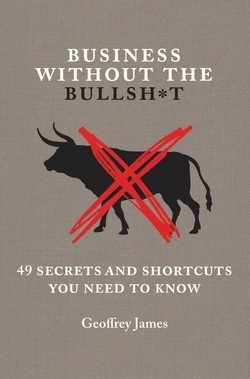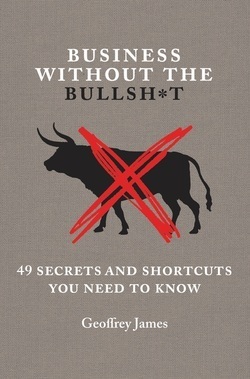Raymond K Rugg's Blog, page 4
July 1, 2014
Atlantis, we meet again!
 The Atlantis Casino/Resort in Reno, Nevada. And we-- you and I-- also meet again, constant reader! (To lift a phrase from my constant source of inspiration, Stephen King.)
The Atlantis Casino/Resort in Reno, Nevada. And we-- you and I-- also meet again, constant reader! (To lift a phrase from my constant source of inspiration, Stephen King.)Yes, I admit it's been a bit longer than usual between posts, but I hope you'll think it's worth it when you see what I've been up to. I've joined the ranks of the contributing writers for a very prestigious genre website, Fantasy Faction (www.fantasy-faction.com).
My first piece debuted last Thursday, June 26, under the same title as the title of this post, and I'm pretty happy with it.
As for Fantasy Faction, founder Marc Alpin has been running it from the UK for the past 3 years, and in that time has garnered an impressive array of honors, such as the Best of Reddit award for 2013, and being nominated for Best Non-Fiction for the British Fantasy Awards for both 2013 AND 2014.
It's an honor to be counted among the writers for Fantasy Faction, and I hope you'll visit the site, read my article about the origin and evolution of the Atlantis mythos in Speculative Fiction, rate it and make a comment, and then look at all of the other great stuff on the site, including a members forum that hosts a lot of diverse and lively discussion on all sorts of fantasy topics, and beyond. My article is at http://fantasy-faction.com/2014/atlantis-we-meet-again.
And don't worry- more Sales and Sci Fi posts coming soon!
Published on July 01, 2014 19:50
June 12, 2014
FIREFLY! FIREFLY! FIREFLY!
 I've started re-binge-watching the short-lived sci-fi-western television series Firefly. Of course it's limited by its venue, some of the situations are two-dimensional, and let's face it, it's not Shakespeare.
I've started re-binge-watching the short-lived sci-fi-western television series Firefly. Of course it's limited by its venue, some of the situations are two-dimensional, and let's face it, it's not Shakespeare. But I love it. I love the characters, I love the actors, I love the world-building. I love, love, love the theme song. Did I mention that I love Firefly?
So this week, I'm posting Lesson #18 from The Handbook. It's a lesson from the series, and in particular, from the episode "Our Mrs. Reynolds," that guest stars Christina Hendricks, more recently of Mad Men fame.
And two side notes--
1. Alan Tuydek, who plays Wash in Firefly, also has another connection with The Handbook; Lesson #9 references the Disney animated film Wreck-It Ralph, in which Tudyk voices the character "King Candy."
2. Alan Tuydek AND Jewel Staite (who played Kaylee on Firefly) are BOTH scheduled to attend the Wizard World Reno Comic Con... Life is GOOD!
Anyway. So. Here's the lesson.
The Sci-Fi: Firefly. Television series by Josh Whedon.
The Sales Sitch: The setting is the 2500s, after a civil war in which the planets and forces seeking greater freedom and more independence and rights were brought back under the control of the Alliance. Malcolm “Mal” Reynolds (a former Browncoat, as the rebels are known) is the captain of a Firefly-class spaceship, a cargo ship that he uses to eke out a living in interplanetary transport. He and his crew (including another veteran soldier buddy from the war) take on a lot of smuggling, robbery and other extra-legal work, particularly if it will serve as a way to thumb their noses at the Alliance authorities that be.
Crewmember Jayne Cobb is portrayed as a fairly amoral mercenary, not usually coming across as too bright or sentimental, but very competent at his job (which is often beating people up, or even killing them). He has a special weapon that he likes to use (“It is my very favorite gun.”) and it actually shows up in a number of situations in the series. As noted in wikia devoted to the show, “He had named his favorite and most powerful gun, a Callahan full-bore auto lock with customized trigger.” (Its name is Vera.) “He acquired it after killing the previous owner, one of six assassins trying to kill him.”
The Sales Sitch: Sales is not an arena in which to be understated or subtle. Sometimes sales reps are afraid of coming on too strong to a prospect, but you need to go in with your best offer, to show your full strength in order to show up the competition, or even better, to blow them completely away and to establish your own primacy. You need to bring out the big gun.
If you come into the fray with anything less than your best, there are a number of results that you can expect, and none of them are good. First and foremost, you can lose the sale to your competitor who has made a better offer. Their best, or even their second-best, might be better than the less-than-best offer that you brought to the table. But if you go in with your best, then even if you lose the account, you know that it wasn’t because you mis-judged how much effort to put into it… you’ll know that the deal was beyond your control no matter what, that you didn’t lose it because of anything you could have done differently.
And if you DO win the account with a less-than-best offer, you might be encouraging your competition to keep sniping at you… they may feel that they only missed beating you out by a little bit, and that they are still in the game when the sales opportunity cycles back around. The client may feel this way, too, whereas if your proposal really crushed the competition, both may feel that your competitor just isn’t in your league.
Another bad situation that can arise from winning an account with a second-best offer is that if and when there is a problem with the sales or service, it may give the client a reason to take the business elsewhere the next time around. They may think they don’t really have that much to lose, since your deal was only a little bit better than the other provider’s offer. On the other hand, if your deal was so much better than that of your closest competitor, the client may be willing to put up with a few minor setbacks… after all, they did get such a great deal on the product.
The Sales and Sci-Fi Lesson: Go in with your big guns, your best deal. Always. Or risk losing to someone else who does.
The Sci-Fi Skinny: Firefly, the short-lived but much-loved fan favorite television show from Joss Whedon (American writer, director, producer, b. 1964) is often (very accurately) called a ‘Sci-Fi Western.’ The civil war in the storyline, while not over slavery, is over states’ (or planets’) rights, and many of the planets visited by the crew of the Serenity are frontier civilizations reminiscent of the early American West. Like Christopher Nolan, Whedon is another individual who has, by virtue of originality and creativity, worked his way up to an impactful position in Sci-Fi film. In addition to screen works (big screen and small screen) including Buffy, Angel, Dr. Horrible and The Avengers, Whedon has also made a name for himself in the comic book field. Firefly ran 14 episodes in 2002-2003, and led to a movie, Serenity, in 2005.
Published on June 12, 2014 22:17
June 4, 2014
Re: #GetMoneyOut ... Nice try, Harry Reid, but you'd better go read some Heinlein
 Harry Reid Yesterday, Harry Reid testified at the Senate Judiciary Committee hearing in favor of a Constitutional amendment to get dark money out of the political system.
Harry Reid Yesterday, Harry Reid testified at the Senate Judiciary Committee hearing in favor of a Constitutional amendment to get dark money out of the political system.Now, I like Harry. I've met him a few times, and he has always been gracious and soft-spoken, even when we disagreed on some issues.
And the issue of dark money is one that I DO agree with him on, but he's fighting a losing battle. All you have to do is read Friday by Robert Heinlein to see how this whole situation turns out. I applaud Harry's efforts to stave off the inevitable, but I have seen the future, and guess what? The corporations win.
You can read Harry Reid's prepared statement or watch a video of his testimony at http://reid.enews.senate.gov/mail/util.cfm?gpiv=2100116874.241314.125&gen=1
Published on June 04, 2014 15:27
June 3, 2014
Prometheus Finalists Announced
 Harlan Ellison Locus Online reports that the Libertarian Futurist Society has published the list of the finalists for their annual Prometheus Award, with the winners to be announced at Loncon 3 in August. The lineup of finalists includes a pair of past winners-- Cory Doctorow and Sarah Hoyt-- as well as a pair of writers that I don't believe I've seen nominated for this award in the past-- Ramez Naam (with two entries) and Marcus Sakey.
Harlan Ellison Locus Online reports that the Libertarian Futurist Society has published the list of the finalists for their annual Prometheus Award, with the winners to be announced at Loncon 3 in August. The lineup of finalists includes a pair of past winners-- Cory Doctorow and Sarah Hoyt-- as well as a pair of writers that I don't believe I've seen nominated for this award in the past-- Ramez Naam (with two entries) and Marcus Sakey.And in the running for the Hall of Fame Award is one of my favorites from Harlan Ellison, who just celebrated his 80th birthday, if you can believe it.
Looking back over the lists of Prometheus Award nominees is fascinating, not the least of which because it seems that probably a good half of the writers cited in The Handbook of Sales and Science Fiction have been nominated for recognition by the Libertarian Futurists (including this year's nominees Doctorow and, in the Hall of Fame category, Lois McMaster Bujold). But I guess that's not a big surprise, given my predilection for the works of Robert Heinlein.
Here are the links for more news and info, and congrats to all the finalists!
The Prometheus Award nominees, finalists and winters from the past at the Libertarian Futurist Society's website: http://www.lfs.org/novel_nominees.shtml
The list of this year's finalists at the Locus Online website: http://www.locusmag.com/News/2014/06/2014-prometheus-award-finalists/
And the official website of Loncon 3. http://www.loncon3.org/
Published on June 03, 2014 21:45
June 1, 2014
Sales Lessons from Tanya Huff and Mark S A Smith
 Tanya Huff I subscribe to several newsletters, blogs and such of sales tips and inspiration (of course!) And I often find different variations, twists and different takes on my own perceptions of sales. This is the case with a recent article that I read by Mark S A Smith, who writes quite a bit on the sales industry. His "Being a Sales Professional: 3 Weird Mistakes That Make Sales Pros Look Like Amateurs (Is This You?)" includes the mistakes of Complaining and Making Excuses, and brought to mind Sales Lesson #16 from the Handbook of Sales and Science Fiction, drawn from the Valor military sci-fi series by Canadian author Tanya Huff.
Tanya Huff I subscribe to several newsletters, blogs and such of sales tips and inspiration (of course!) And I often find different variations, twists and different takes on my own perceptions of sales. This is the case with a recent article that I read by Mark S A Smith, who writes quite a bit on the sales industry. His "Being a Sales Professional: 3 Weird Mistakes That Make Sales Pros Look Like Amateurs (Is This You?)" includes the mistakes of Complaining and Making Excuses, and brought to mind Sales Lesson #16 from the Handbook of Sales and Science Fiction, drawn from the Valor military sci-fi series by Canadian author Tanya Huff.You can find Smith's article at http://ezinearticles.com/?Being-a-Sales-Professional:-3-Weird-Mistakes-That-Make-Sales-Pros-Look-Like-Amateurs-(Is-This-You?)&id=6934752, or access more of his work at his blog at http://marksasmith.com/
Sales Lesson #16 from Rugg's Handbook of Sales and Science Fiction is included below in its entirety.
Lesson 16
The Sci-Fi: Valor’s Choice. Novel by Tanya Huff.
The Sci-fi Sitch: Staff Sgt. Torin Kerr’s combat-hardened platoon and their new, green second looey have been sent to babysit a diplomatic mission, the delegates of which are trying to convince a new and unaligned alien race (human-sized martial lizards) to join the good guys of the universe-- the Confederation-- instead of the baddies-- the Others. The differences between the enlisted Marines, the officers, and the diplomats notwithstanding, Staff closes ranks throughout the story in defense of the Marines, of the Confederation, and of humans. This philosophy of sticking together, of group loyalty (even when faced with evidence that her superiors set Staff and her troops up to be ambushed and slaughtered), ultimately saves the day, the diplomatic mission, and by implication, the future of the Confederation.
The Sales Sitch: Like the staff sergeant, even when you feel that the company is treating you badly, you can’t badmouth it in public. Even if there is a devastating situation that is your manager’s fault, or even comes from higher up the food chain, make sure not to complain to clients, prospects, or anyone else outside your organization. If you air your grievances about the higher-ups in public, it makes it look as if you are trying to shift blame and weasel out of responsibility. And if, the prospect wonders, the rep will shift blame off of herself or himself onto the company, might they not also, in certain situations, try to shift blame for a problem onto a client? Why would a client want to work with someone who might, when the chips are down, try to blame the client for a sales rep error? Or even if you have a great relationship with the prospect or client, and they know/believe you that the responsibility for the problems lies with the corporate brass, and not with you, well then, why would they really want to do business with an organization that has such incompetence in its chain of command?
The Sales and Sci-Fi Lesson: Don’t badmouth the company- you have more to lose than to gain by blaming management or other people in your organization for problems or errors.
The Sci-Fi Skinny: Tanya Huff (Canadian writer, b. 1957) is known for her several fantasy series more than she is for her one Sci-Fi series, but her military science-fiction series, the Valor Confederation, rings pretty true to my ear (I do have some military experience. Not tons, but some). Valor’s Choice was published in 2000, and was included in an omnibus collection in 2006, A Confederation of Valor, which included the first two novels of the series, Valor’s Choice and The Better Part of Valor, the latter of which was published in 2002.
Published on June 01, 2014 20:11
May 28, 2014
Sales Lessons from Bradbury and Post
 Ray Bradbury One of the few magazines to which I actually subscribe is Training: The Source for Professional Development.
Ray Bradbury One of the few magazines to which I actually subscribe is Training: The Source for Professional Development. The March/April 2014 issue had a great piece that ran in the "last word" column. Written by Peter Post, the director of the Emily Post Institute and co-author of The Etiquette Advantage in Business, this particular entry discussed the Bulletin Board Rule. Post states the rule as If you can't put it on a bulletin board for anyone to read, don't e-mail it, text it, Instant Message it, leave it on a voicemail, tweet it, or blog it.
The Bulletin Board Rule strongly reminds me of Lesson 23 of Rugg's Handbook of Sales and Science Fiction. The lesson, drawn from Ray Bradbury's Fahrenheit 451, states If you put it in writing (on paper or digitally), you had better plan on it being around forever. If you write it, you will need to own it.
You can read Post's column about the Bulletin Board Rule in its entirety (as well as anything else from past issues of Training... they've got a killer archive resource!) on the internet at www.TrainingMag.com. Just click on "past issues" and select the title you want to read. You can also learn more about Peter Post at www.emilypost.com/seminars.
And here is the full text of Lesson 23 from the Handbook.
The Sci-Fi: Fahrenheit 451. Novel by Ray Bradbury
The Sci-Fi Sitch: This classic novel of book banning is set in the near future, when books of all sorts have been outlawed, and firemen are not here to help humanity by putting out house fires – all of the homes are fireproof-- but instead, exist to track down and incinerate those tools of the subversives: books. And if the subversives end up charbroiled in the process, well then, they brought that on themselves, now didn’t they? The novel takes its name from the temperature at which paper ignites, and the storyline follows one of the firemen, Montag, through his transformation from a good, order-following public servant, to a confused soul, intrigued by the forbidden books, and finally to a fugitive from society, living outside of civilization in the country, along with the other rebels who dare to read and preserve literature. But these refugees don’t carry the actual books around with them- each person has memorized a book, and they keep the world’s greatest works intact by passing the written word along in an oral tradition.
The Sales Sitch: This novel has become the standard-bearer in the fight against censorship and book-banning. But the lesson for the sales rep is not quite so lofty. Instead, it is a reminder of the persistence of the written word, be it on paper or in a digital file. In Fahrenheit 451, several noted works of literature survive and thrive, through even a societal purge that seeks to eliminate books. So too will your memos and e-mails survive even your most stringent efforts to delete them. In other words, don’t write it down if you don’t want it to exist in that form throughout eternity. When you write a bid proposal or make a service guarantee, you had better be prepared to stand by it, because if you don’t, it will turn up when you least expect it and bite you in the behind.
The Sales and Sci-Fi Lesson: If you put it in writing (on paper or digitally), you had better plan on it being around forever. If you write it, you will need to own it.
The Sci-Fi Skinny: Fahrenheit 451, published in 1953, was perhaps the most well-known work of Ray Bradbury (American writer, 1920 - 2012), along with his Martian Chronicles and The Illustrated Man. As mentioned, Fahrenheit 451 is annually trotted out by the anti-censorship movement, almost as a manifesto of the cause. So it's worth noting what the author himself had to say about it. Journalist Amy E. Boyle Johnston interviewed Bradbury shortly after he was awarded the Pulitzer Prize in 2007. She reported that he was fairly emphatic that F451 was not a story about government censorship, but instead, an indictment of television’s soul-suckingness and its role in the death of literature.
Bradbury is also famous, or perhaps infamous, for refusing to allow ebook or digital versions of his works. Shortly before his death in 2012, though, he made the news again for a publication contract renewal that included an ebook provision. It seems that he was forced into allowing for digital publication as a condition of renewal, but at the same time, made the digital publication contingent upon the publisher, Simon & Schuster, making the Fahrenheit 451 ebook available for public lending libraries (which had been against Simon & Schuster's policies at that point.)
Published on May 28, 2014 20:12
May 18, 2014
A Sales Lesson from the Publishing World
 Earlier this year, there was some news about a rather important individual in the publishing world--
President and publisher of Gotham/Avery Books
Bill Shinker
will step down on January 31 to do consulting, after what Penguin president Susan Petersen Kennedy calls a "storied four-decade publishing career [that] uniquely includes the founding of two lasting Penguin and Random House imprints: Gotham Books and Broadway Books."
(As reported in Publishers Lunch)
Earlier this year, there was some news about a rather important individual in the publishing world--
President and publisher of Gotham/Avery Books
Bill Shinker
will step down on January 31 to do consulting, after what Penguin president Susan Petersen Kennedy calls a "storied four-decade publishing career [that] uniquely includes the founding of two lasting Penguin and Random House imprints: Gotham Books and Broadway Books."
(As reported in Publishers Lunch)The reason that I bring this up is that I recently ran across the following reference to Shinker in the book Putting Your Passion Into Print. In it, authors Arielle Eckstut and David Henry Sterry note, William Shinker ... has these words hanging in his office: "The man who said 'Don't judge a book by its cover,' never sold a book in his life."
It's a validation of Lesson #20 from The Handbook of Sales and Science Fiction, that a person who is spending money on a purchase does judge book by its cover. Here's the lesson in its entirety.
The Sci-Fi: The Cover Art of Sweet, Whelan, Vallejo, etc. Industry anecdote.
The Sci-Fi Sitch: Growing up in small, rural town in the West, I quickly worked my way through the limited science-fiction section of the local library. So when we would make a visit into the big city, once every couple of months or so, I would bring along the spending money I had earned from chores and splurge on a new book. (Well, maybe not a big city, but at least a city. Put it this way, it did have a couple of bookstores in it, which was a couple more than the little town out in our neck of the sticks.) But deciding just what book to buy could be a daunting task, given the wide selection from which to choose. One way that I could pick a new book was, of course, to buy something by one of my go-to writers, like Robert Heinlein, Isaac Asimov, or Edgar Rice Burroughs. But what about when I wanted to branch out?
What I did then was to look at the cover art on the books and authors that I knew and liked, and then searched for new authors whose covers had the same type of art. In this manner, Boris Vallejo led me from Tarzan’s jungles to Zelazny’s Amber. Michael Whelan guided me from the red planet Barsoom to the dragon-filled skies of Pern. Darrell K. Sweet took me from Heinlein’s Tunnel in the Sky, Time for the Stars, and more, to a batches of other Del Rey books by other writers. In other words, yes, I made a habit of judging books by their covers.
The Sales Sitch: And I’m not the only one. When someone is being asked to invest money (their own, or their company’s) into a new product or service, they really do want some indication that they are going to get something of quality in return. And the appearance, the packaging, (the cover), is the most visible and immediate representation of that quality. When a prospect or a new client sees an outward appearance that is obviously the result of care and attention, something that both you and they can be proud of, they think to themselves, “Well, so far, so good!” before even getting to the essence of the product. But if their first sight of the product is a shabby, poorly-executed or amateurish “cover,” you have already primed them into a negative expectation. Even if the product itself is flawless, you’ve already put yourself at a disadvantage. And when I talk about the appearance of the product, that includes your appearance as well; you are what you represent, and what you look like will influence what your client thinks about your product.
The Sales and Sci-Fi Lesson: First impressions count, because a person who is about to spend money does and will judge a book by its cover.
The Sci-Fi Skinny: Boris Vallejo (Peruvian-born American artist, b. 1941) is known for his paintings of larger-than-life brawny warriors, busty barbarians and epic creatures. It’s a style very well suited for action fantasy, such as Tarzan or Conan, but his work has also graced the covers of some science-fiction as well, including books by authors such as Philip Jose Farmer, Frederik Pohl, Theodore Sturgeon, and some Star Trek novelizations. Vallejo was nominated for Hugos in 1979 and 1980, and was a guest of honor at the 69th annual World Science Fiction Convention.
Michael Whelan (American artist, b. 1950) started out selling to Marvel Comics, Ace Books, and even Harlan Ellison, and has had a steady and productive career ever since. He was nominated for his first Hugo in 1978, and won his first one in 1980. He has been associated with the Edgar Rice Burroughs John Carter of Mars series, Stephen King’s Dark Tower stories, and has done work for covers of books by Asimov, Clarke and Heinlein. He was guest of honor at the World Science Fiction Conventions in 1998 and 2007. He has been inducted into the Science Fiction Hall of Fame and has been awarded the Solstice Award from the Science Fiction Writers of America. And finally, when Darrell K. Sweet passed away in 2011, leaving the 14th and final book in the Wheel of Time series without cover art, publisher TOR asked Whelan to do the art for A Memory of Light. According to his bio, he “strove faithfully to capture the hero’s likeness and the mood of the series in the Whelan style, while remaining true to Sweet’s vision.”
Darrell K. Sweet (American artist, 1934 – 2011) was, perhaps, more known for fantasy art, such as his work on the Piers Anthony Xanth series and Robert Jordan’s Wheel of Time books, than for his science-fiction art, but he did do several Sci-Fi covers, including art for books by Robert Heinlein, Philip K. Dick, Larry Niven/Jerry Pournelle, Frederik Pohl, Alan Dean Foster, L. Sprague De Camp, James P. Hogan and Isaac Asimov. Sweet was nominated for a Hugo in 1983.
Published on May 18, 2014 13:25
May 13, 2014
Sales Lessons from the Hugos 2014: Girl Genius
 Looking at the nominee list for the Hugo Awards set for Loncon 3 in August, I realized something... I've got to spend a little less time on sales and a little more time on catching up on the new crop of science fiction.
Looking at the nominee list for the Hugo Awards set for Loncon 3 in August, I realized something... I've got to spend a little less time on sales and a little more time on catching up on the new crop of science fiction.There are a lot of names there that I don't recognize, and I'm excited to beef up my library with new and fresh SF.
One nominee that I do recognize, however, is also the source material for one of the Lessons from my Handbook of Sales and Science Fiction. Girl Genius, my old friend! Girl Genius (Volume 13) is up for Best Graphic Story. So here is Lesson #3 from the Handbook, a lesson that is, perhaps, one of the odder ones from the collection, but as time goes by, more and more I feel that it is a valid observation.
Lesson 3
The Sci-Fi: Girl Genius. Web comic by Phil and Kaja Foglio.
The Sci-Fi Sitch: The setting of Girl Genius is steampunk-flavored Europe, 1800’s-ish or so. Mad science is the rule of the day, with those who have the innate talent, or spark, doing all sorts of crazy stuff, like building robots (clanks) and artificial humanoids (constructs), re-animating the dead, creating sentient castles, and all that kind of thing. The continental power is in the person of Baron Wulfenbach, an iron-handed tyrant ruling from his dirigible castle. The story begins some years following the defeat of an alien enemy of humanity, the Other, by the Baron and his allies/rivals, the Heterodyne Brothers. In this gaslamp adventure, when the mad science talent blooms in one of the sparks, it is a breakthrough (often traumatic), a sudden burst of ability or inclination, and Wulfenbach strives to gather these talents up to work for him (willingly or not).
The Sales Sitch: There seems to be a sort of breakthrough that can occur in sales, the same kind of breakthrough that is experienced by the ‘sparks’ of Girl Genius. I have observed it in a number of different sales situations, and I have heard the concept from a number of different and disparate sales veterans and managers (expressed in different terms, but with the same underlying theme).
Sales sparks often experience breakthroughs in the third selling cycle of their particular field or industry. Some poor sales slob will start a job and be plugging away, maybe just making quota, maybe just not making quota, banging his or her head against the wall, getting frustrated and questioning the wisdom of getting into this particular line. And then, if they can hang on through the third sales cycle, all of a sudden everything seems to click. Presentations go well, prospects turn into clients, existing clients upgrade their orders, and other prospects actually come around seeking the sales rep out. For something like advertising sales in a daily or weekly publication, this breakthrough might happen after three months in. For a product with a longer sales cycle, the spark might have to stick with it for three quarters in order to experience this burst of success. And for others it may mean three years into the job, for example if the rep is involved in seasonal sales (selling to summer or winter resorts, sales related to a particular holiday or sport) or yearly sales (educational markets tied to the school year).
Of course, there are sales reps who jump into a job like a duck jumps into water. They might be successful at it from day one. On the flip side, there are those who jump into it like an anvil jumps into water... they sink, and nothing will ever, ever make them float. But sometimes, sometimes, it a rep will struggle and struggle, and then, BAM, all of a sudden, in the third sales cycle, they come into their own.
The Sales and Sci-Fi Lesson: Keep on plugging away; even if things are going badly, it might be that you are a sales spark just about to blossom into some mad sales success. Look for a breakthrough after the third sales cycle.
The Sci-Fi Skinny: I have used the Omnibus Volume One: Agatha Awakens hardback collection of Girl Genius as a reference for this sales lesson. Girl Genius is a web comic by the unparalleled husband-wife team of Phil and Kaja Foglio. The comic posts to the web on Mondays, Wednesdays and Fridays, and in addition to being what their publisher, TOR books, calls “the acclaimed, multiple-Hugo Award-winning steampunk fantasy adventure,” the storyline is also available in novel form. And yes, there are fantasy elements to Girl Genius, but it is a story about Mad Science, and therefore fits my requirements for Sci-Fi.
Oh, and ps, the next Handbook of Sales will include a lesson from Robert Asprin's MythAdventures... the graphic novel of which was my first introduction to Phil Foglio :)
Published on May 13, 2014 08:19
May 9, 2014
How much BS is in YOUR workplace?
 In the previous post, I talked about the new book from Geoffrey James, Business Without The Bullsh*t.
In the previous post, I talked about the new book from Geoffrey James, Business Without The Bullsh*t. On his website, he also has a quiz, "How Much BS is in Your Workplace?" I finally got a chance to take it, and the result was pretty much what I figured... I have a moderate amount of baloney to deal with in my office. It could be better, but it could be worse. And I've got a pretty decent manager who runs interference between those of us in the sales trenches and some of the worse BS that comes down the pike from the corporate brass. So I'm not complaining. Not too much, anyway.
You can check the level of BS at your office, too. Visit his site at http://geoffreyjames.com/?page_id=635
And the last time I checked, he's also still offering the Bonus Chapter and Signed Bookplate for pre-ordering the book. Just click on his site here: http://geoffreyjames.com/
Again, I'm so excited about Geoffrey throwing a bone to Science Fiction, I can hardly stand it... In fact, the first person to write to me and describe the situation in Business Without the Bullsh*t where Geoffrey talks about science fiction, I'll send them a signed copy of *my* book, Rugg's Handbook of Sales and Science Fiction. Let's get the party started!
Published on May 09, 2014 19:11
May 6, 2014
Pre-order Geoffrey James, get a bonus chapter
 The latest from Geoffrey James is almost here-- Business Without the Bullsh*t. And if you pre-order this book in the next couple of days, Geoffrey says he'll throw in a special bonus chapter and a signed bookplate.
The latest from Geoffrey James is almost here-- Business Without the Bullsh*t. And if you pre-order this book in the next couple of days, Geoffrey says he'll throw in a special bonus chapter and a signed bookplate.It's a good deal all the way around. The book is an Amazon-selected April 2014 Editor's Pick in Business & Money, it's reasonably priced, and it really is chock full of quick and dirty solutions to a lot of the BS that we run into daily in the office and workplace.
I've been a reader of Geoffrey's blog for a while now, because he always has something really worthwhile to say. And that's what this new book is-- one really worthwhile thing after the other. He calls it '49 Secrets and Shortcuts You Need To Know' but there's so much more here. Each secret and shortcut is in and of itself made up of several points of advice, information and tips, all of which are solid nuggets of business knowledge themselves. In fact, I just picked up the book again and flipped through it at random and was honestly and truly impressed anew at the straight-shooting common sense that Geoffrey delivers so clearly. He really does cut through the baloney and deliver real and important information.
And if that's not enough, he mentions Science Fiction in the book! One caveat, I was lucky enough to get to read an advance proof of Business Without The Bullsh*t, so it's possible that the reference will be edited out in the final copy, but my fingers are crossed that it will make the cut. It's not a really big deal, but when you spend most of your time thinking about the connections between SF and sales and business, all it takes is something like this to make your day.
Visit Geoffrey's website to pre-order at http://geoffreyjames.com/. And tell him that I sent you! (And that you hope that the SF reference is still in the book!)
Published on May 06, 2014 20:58



